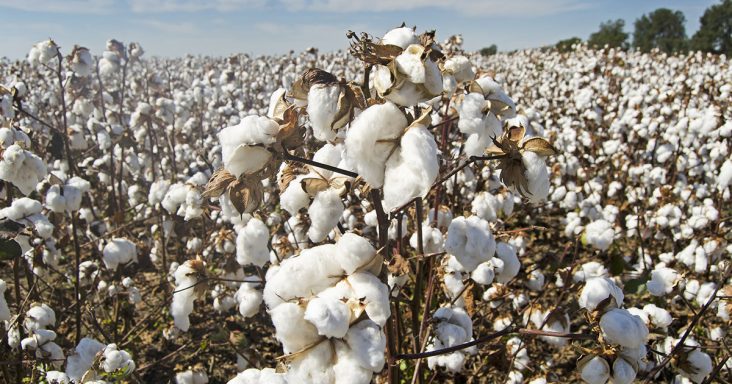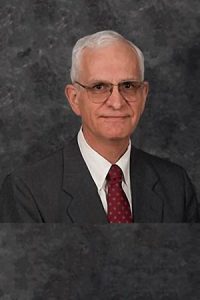Dr. Fred Bourland receives A.L. Vandergriff Cotton Pioneer Award
by March 11, 2021 12:19 pm 704 views

Mississippi County native Dr. Fred Bourland received the A.L. Vandergriff Cotton Pioneer Award in February from the Southern Cotton Ginners Association. He is a professor of cotton breeding and genetics for the Arkansas Agricultural Experiment Station, the research arm of the University of Arkansas System Division of Agriculture.
The award recognizes a career of innovative cotton research accomplishments.
“The Agricultural Experiment Station is proud of Dr. Bourland’s many accomplishments and distinguished career in cotton breeding,” said Jean-François Meullenet, senior associate vice president for agriculture-research and director of the experiment station. “We congratulate him on receiving this prestigious award.”
The Bourland family farm was in Mississippi County near the community of Lost Cane.
“We were actually between Lost Cane and Whistleville. Which is to say, not really near any town. When we went hunting, we actually went toward town,” Bourland said. “That town was Manila, where he went to high school.”
During his senior year of college, Bourland took a class in plant breeding taught by experiment station soybean breeder Chuck Caviness, who developed some of the earliest Arkansas-adapted soybean varieties. Bourland said he began reading everything he could about crop breeding, even beyond what was required for the course.

By 1970, when he began his master’s degree program at the U of A, he was back in tall cotton. After earning his Master of Science in plant breeding, Bourland went to Texas A&M University, where he earned a doctorate in genetics.
With a Ph.D. in hand, Bourland went to work as an assistant professor and cotton breeder at Mississippi State University. Ten years later in 1988, he came back to Arkansas as a full professor to breed cotton for the Agricultural Experiment Station and to teach for the Bumpers College.
In 1997, Bourland moved to Keiser — roughly 10 miles south of his family’s Mississippi County farm — to continue his cotton breeding and research program while serving as director of the Division of Agriculture’s Northeast Research and Extension Center. In 2016, he stepped down as director and now focuses all of his energy on cotton.
In that time, he has released more than 100 improved cotton varieties and germplasm lines adapted to Arkansas. Other public and commercial cotton breeders use those germplasm lines in their own breeding programs.
Bourland said he is proudest of the new breeding tools and methods that he has developed. “Those tools and techniques will still be used long after my germplasm is gone,” he said.
In breeding and developing new breeding technology, Bourland’s aim is the same — improving yields and fiber quality of cotton.
One of his current projects focuses on developing smoother bracts — the leaflike structures at the base of the cotton bolls. They are covered with fine, hairlike structures that tend to make the bracts adhere to the cotton fibers during picking. They are hard to remove during ginning and cleaning and are considered trash when the cotton is graded. That can cost cotton growers discounts in the prices they receive for their crops.
“Leaves fall off on the ground when cotton fields are defoliated before picking,” Bourland said. “But the bracts remain attached to the bolls, and they tend to stick to the fibers.”
A smoother bract with fewer hairs, or no hairs, could go a long way toward reducing the trash in cotton bales and improving farmers’ income.
Bourland has a lengthy list of recognitions on his resumé, including the 1999 Arkansas Cotton Achievement Award from the Division of Agriculture; the 2000 Genetics Research Award from the National Cotton Council; the 2010 International Cotton Researcher of the Year from the International Cotton Advisory Committee; and the 2015 Cotton Research and Promotion Program Hall of Fame from the Cotton Board and Cotton Incorporated, among many others.
Bourland said he was not expecting to receive the A.L. Vandergriff Cotton Pioneer Award from the Southern Cotton Ginners Association.
“It was a total surprise to me,” Bourland said.
